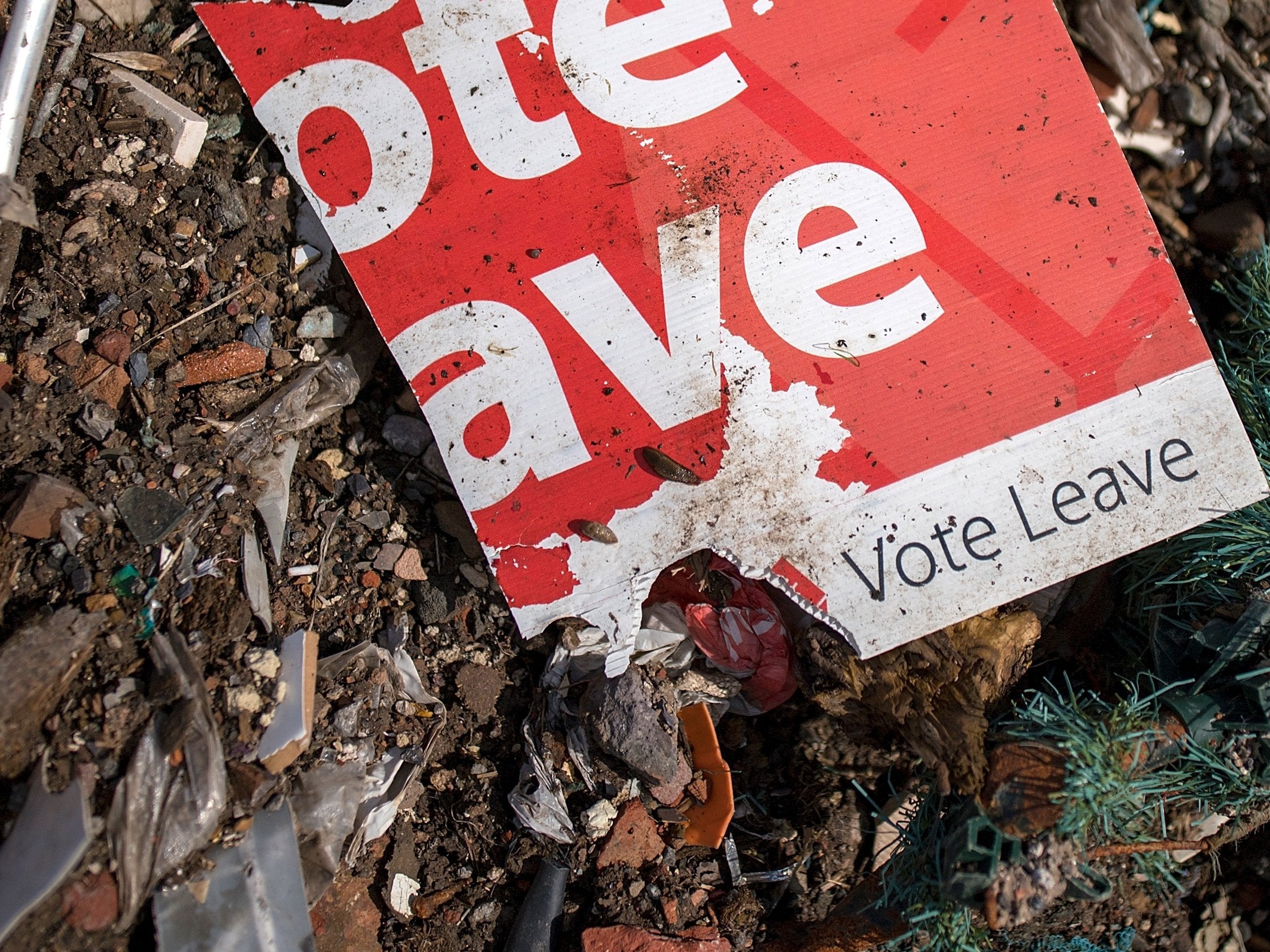Why was the Leave campaign accused of cheating in the Brexit vote?
Analysis: Vote Leave and Leave.EU both breached strict spending limits during the EU referendum, Lizzy Buchan explains


One of the long-running rows on both sides of the Brexit debate is whether the EU referendum campaign was conducted fairly.
From Vote Leave’s now discredited promise of sending £350m a week to the NHS, to warnings from Remain backers of a devastating economic crash that never came, both sides say voters were fed wild claims.
But was there more to it?
The Leave campaign has been dogged by allegations of cheating since the referendum vote, raising questions over whether this would have affected the result.
The row centres on irregularities in campaign financing, an area governed by strict rules to level the playing field and prevent wealthy parties from completely outgunning smaller campaign groups.
Vote Leave, the official Brexit campaign, was fined £61,000 and referred to the police by the Electoral Commission last year for breaches of campaign spending limits during the 2016 referendum campaign.
The elections watchdog said Vote Leave had exceeded the £7m spending limit by making a £675,000 payment to youth group BeLeave, run by student Darren Grimes. The money was then paid to Canadian data firm AggregateIQ, which was at the centre of whistleblower claims that it used micro-targeted ads to sway the result.
The Electoral Commission said it found “significant evidence” the groups were working together, meaning the payment should have been declared by Vote Leave and would have taken them over the limit. Mr Grimes was also fined £20,000 and referred to the police.
Vote Leave, which was backed by senior Tory Brexiteers Boris Johnson and Michael Gove, has always denied any wrongdoing and says the complaints are politically motivated.
At the time, a spokesman said the Electoral Commission’s report contained “a number of false accusations and incorrect assertions that are wholly inaccurate and do not stand up to scrutiny”.
In a fresh twist, a High Court judge ruled in September that the watchdog had misinterpreted spending laws in advice it gave to the Leave campaign. However, it agreed with the Electoral Commission’s findings. The commission is now appealing against the ruling.
Another Brexit campaign, Leave.EU, was also fined after it was found to have exceeded its spending limit. As it was not the official campaign, the group, backed by Nigel Farage and funded by Arron Banks, had a limit of only £70,000, compared with Vote Leave’s £7m.
Mr Banks called the findings “a joke” and said it was an attempt to undermine the referendum result.
However, he was among senior Leave.EU figures who were referred to the National Crime Agency in November over allegations of multiple criminal offences.
The Electoral Commission said it suspected he was not the true source of loans made on behalf of Leave.EU – something Mr Banks denies.
Some pro-EU MPs have questioned whether the referendum result is valid in the wake of these findings, and called on the government to intervene.
However, Brexiteers have previously argued that the Remain campaign used the machinery of government to advance its cause.
Tory Eurosceptics were furious when the government spent £9.3m delivering leaflets to every household with their arguments for staying in the EU back in April 2016 – a week before campaigning began and official spending limits were imposed.
A High Court challenge seeking to annul the result of the Brexit referendum because of “corrupt and illegal practices” by the Vote Leave campaign was dismissed in December through “want of merit”.
It is a complex picture and it would be wrong to draw conclusions while investigations are ongoing.
But it remains to be seen whether the impact on the referendum result can now be unpicked – and whether it will affect the future of the Brexit process.
Got an unanswered question about Brexit? Send it to editor@independent.co.uk and we’ll do our best to supply an answer in our Brexit Explained series
Join our commenting forum
Join thought-provoking conversations, follow other Independent readers and see their replies
Comments